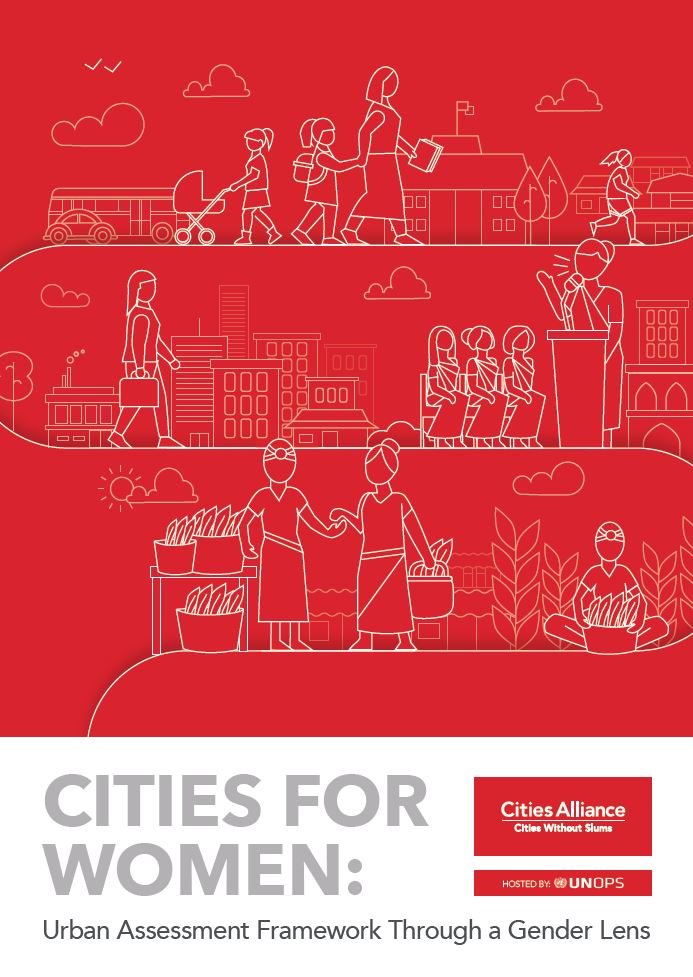Cities for Women
Sub-urban assessment framework through a gender lens

01 September 2020
Cities Alliance, Giulia Maci
English
Guide/ Handbook
Africa, Asia
Cities Alliance has developed a Cities for Women Framework to help local stakeholders as a first step to gaining an understanding of the current engagement of women in the various dimensions of their environments. It is with this understanding that efforts can be made to formulate policy and engagement techniques to improve women’s input in shaping their cities.
This framework is also a tool to allow participatory processes, whereby, women can be active participants of the analysis and improvement of their cities.
The framework aims to do the following:
- improve gender-awareness of city policy makers and local stakeholders, valuing women’s individual and collective knowledge
- bring together a range of local actors to assess, analyse and prioritize women’s cultural, economic and political participation in urban governance
- identify obstacles and enablers for women’s engagement in urban governance and planning, by comparing current everyday experiences and perceptions
- identify spatial practices and lived experiences of women in urban spaces
- promote women’s active engagement in city governance and planning
The framework is already being used in different projects and locations.
- In Banjul, Gambia: to inform the Greater Banjul 2040 Plan.
- In Monrovia, Liberia: to inform the City Development Strategy for the Greater Monserrado Area and the construction of water kiosks in informal settlements, managed by women’s groups.
- In Kathmandu, Nepal: to identify ideas and priorities for the post-earthquake reconstruction program and planning of new towns.
- In Tunis, Tunisia: the framework will be used to develop an inclusive strategy for the Medina of Tunis and the creation of women-led and inclusive public space.
- In Kampala, Uganda: the toolkit will guide the process of construction of sanitation facilities in informal communities.
Abstract based directly on the original source


Comments